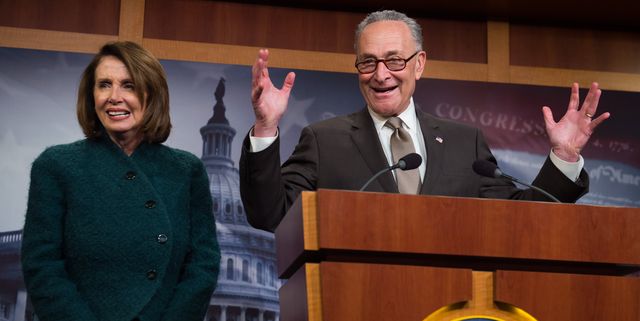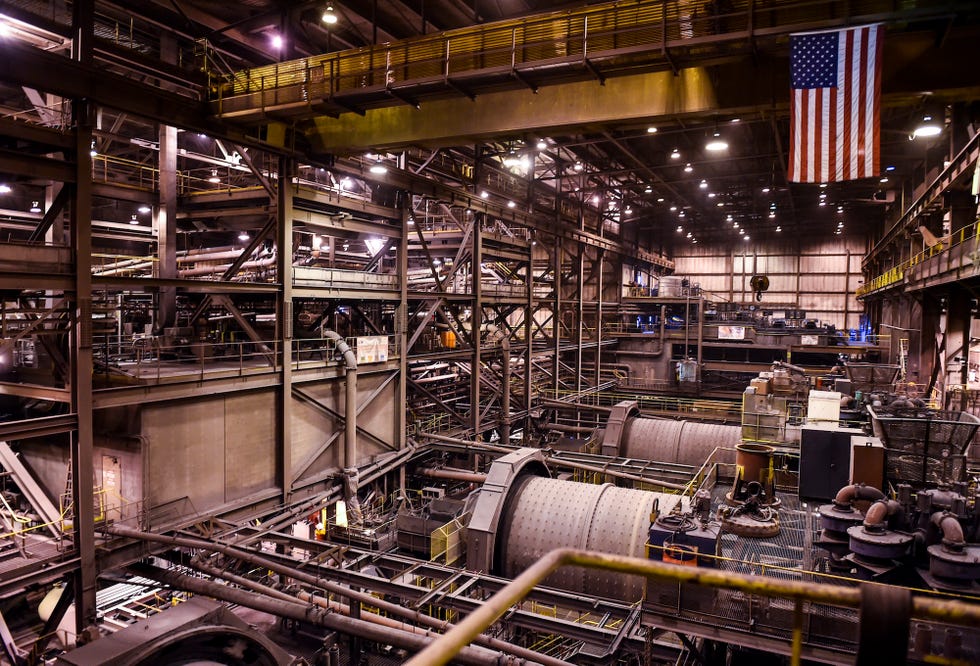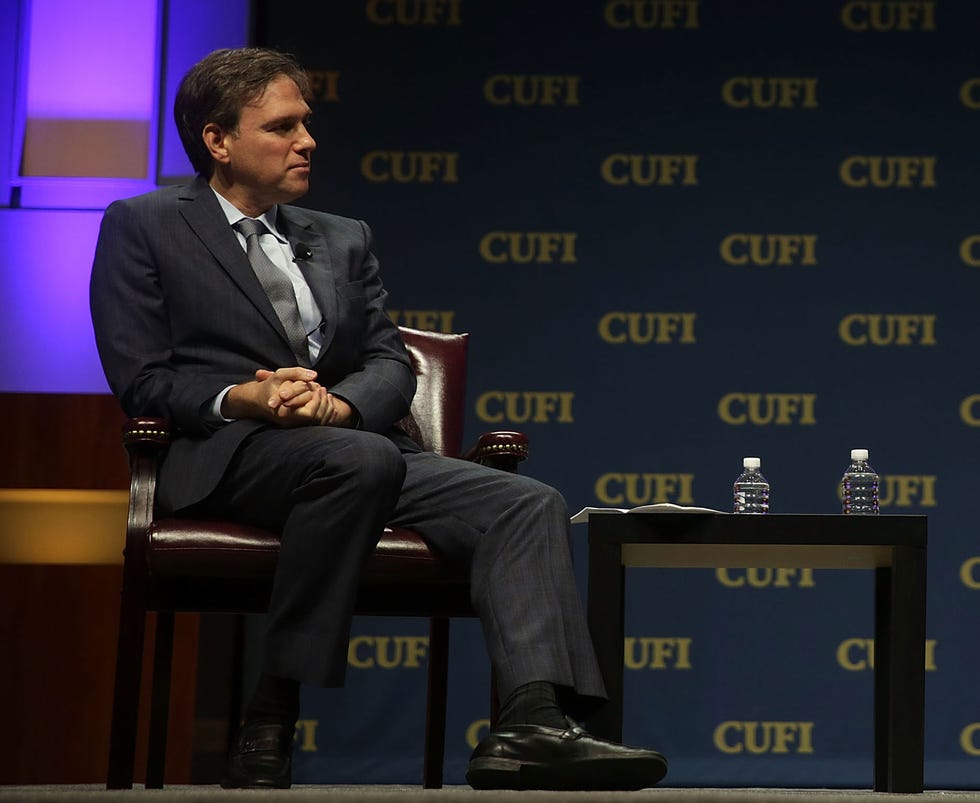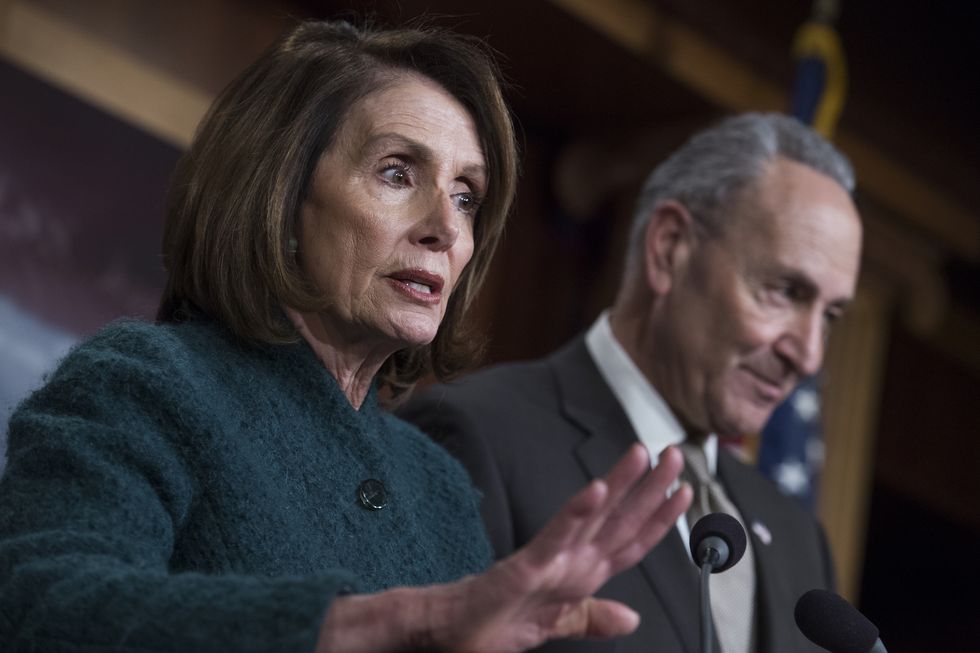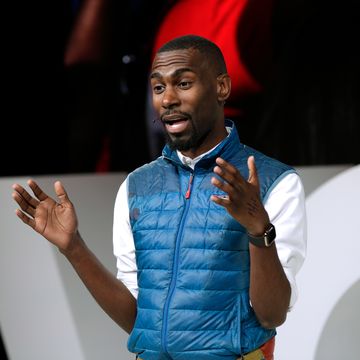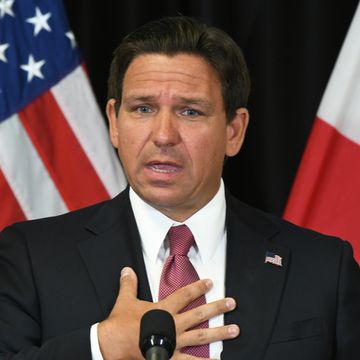Sometimes, I truly despair of our elite political media. Sometimes, I believe that, if many of them saw a guy walking down the street with a duck on his head, they would make sure to go on television and point out that, hey, it might’ve been a duck walking down the street with a guy on his ass.
At the moment, across many platforms, it seems that the possibility of a massive blue wave in the fall elections is making some of my colleagues see said duck with the guy on his ass. Take, for example, this Politico piece about the race to replace Democratic Congressman Rick Nolan in Minnesota. (Extra points to Politico for the actual use of the phrase, “Democrats in disarray,” in the headline.)
Apparently, there are five Democrats running in a primary, which is a good thing. And this is giving hope to local Republicans, which is completely consistent with about 2,500 years of democratic-small-d politics.
Democratic infighting is jeopardizing the party’s hold on one of the nation’s most competitive congressional districts, providing the GOP with a rare pickup opportunity in November as it struggles to hold on to its 23-seat House majority. The White House is already taking notice of the contest in northeastern Minnesota’s 8th District, sensing a chance to claw back a Democratic-held seat in an otherwise grim election cycle. St. Louis County Commissioner Pete Stauber, the Republican running in the largely rural district, said President Donald Trump called him unexpectedly on March 16, saying he “wanted to offer up his support, and anything that he could do to help us win the election, he would do it.” A National Republican Congressional Committee spokeswoman confirmed the president’s call to Stauber.
The unusual dynamics of the race suggest Trump could make a difference. On Minnesota’s Iron Range—a historically Democratic and blue-collar part of the state that Trump won by a wide margin in 2016—conflict between environmentalists and pro-mining Democrats over the future of copper-nickel mining in the region has fractured the party. And Trump’s decision to set new tariffs on steel and aluminum imports has further scrambled the equation after the announcement drew widespread local praise—including from veteran Democratic Rep. Rick Nolan and other Democrats.
Is this a “rural” district? A mining and manufacturing district? Both? Neither? A floor wax? Details help.
Did Stauber accept the president*’s help? Does he plan to? These seem to be fairly important questions in a year in which the graft and bungling at Camp Runamuck are going to be important issues.
In any event, there is no evidence presented in this story that the five Democrats in their party’s primary differ substantially on the issues. The “disarray” in question seems to consist completely on the simple fact of the five candidates and some rosy speculation from local Republicans.
And then there was this highly unfortunate panel on the daily Meet The Press on Tuesday. Katy Tur was hosting Eddie Glaude, Beth Fouhy, the senior political editor for NBC and MSNBC, and Bret Stephens, the resident climate denialist from The New York Times who described the prelapsarian Republican party as one that “at least thought of itself as a party that believed in the importance of moral character, civic virtue, a certain set of ideas that transcended simply the question of tax policy and regulatory policy.”
That Stephens’s tongue did not burst into flame along with his pants at this moment, and that the other people at the desk with him did not immediately dissolve into helpless hysterical laughter, was an indication that we were headed down a bad road. Then, alas, this ensued. Stephens made the unremarkable point that all the Democrats need to become is “the party of sanity, and no porn stars” to do very well in November. (Stephens defines this, of course, as “putting on the Conor Lamb face,” by which he means what he would like the actual Conor Lamb’s positions to be. He’s also not thrilled at the prospect of President Oprah.) And we were off.
Tur: Is there room for that in the Democratic party when you look at the progressive base, the very angry part of the Democratic base that wants Donald Trump out of there and out of there immediately–they want a Democratic majority in the House and in the Senate to come in there and they want him impeached. There is that same fire and vitriol that is anti-Donald Trump that supports Donald Trump.
I have great admiration for Katy Tur but, honestly, have you noticed any Democratic candidate, anywhere, running on the platform that the president* should be impeached? I haven’t, and I doubt Tur has either. The fight in the Democratic Party is about policy; the most recent dust-up was between progressive and conservative Democratic senators over the banking bill.
Anyway, Fouhy chimed in and things got worse.
Fouhy: There will be considerable Democratic cannibalization. That’s not gone away. There are significant divisions in the party that can’t be papered over.
This is, flatly, all my bollocks. (To his credit, Glaude slapped this nonsense back hard.) The election of Conor Lamb is proof enough that, whatever differences there may be within the Democratic party, they can indeed be “papered over” with the right candidate. (Bret Stephens is, generally, correct about this.) I would like an offer of proof of this “considerable cannibalization.” How many Democratic members of Congress are simply quitting because they don’t want to have to choose between political survival and the wrath of The Base? Republicans in this situation are bailing in unprecedented numbers.
I’m still somewhat skeptical about a massive Democratic sweep in November. (I certainly don’t agree with Stephens that the Republicans are setting themselves up for a wipeout like 1974, when Watergate cleaned the stables entirely.) But my skepticism is not based on hoary old clichés like Dems In Disarray or on “cannibalization” that doesn’t seem to be happening anywhere, but, rather, on the structural and institutional roadblocks pointed out last week by the good folks at the Brennan Center.
Because of maps designed to favor Republicans, Democrats would need to win by a nearly unprecedented nationwide margin in 2018 to gain control of the House of Representatives. To attain a bare majority, Democrats would likely have to win the national popular vote by nearly 11 points. Neither Democrats nor Republicans have won by such an overwhelming margin in decades. Even a strong blue wave would crash against a wall of gerrymandered maps. This high barrier to a Democratic majority is at odds with early polls showing Democrats with a significant advantage in the generic congressional ballot. As of mid-March, Democrats held an average lead of nearly eight percentage points, 48-40.1 Based on historical election results, a lead of this magnitude should net Democrats around 30 additional seats—comfortably more than the 24 they need to retake control of the U.S. House of Representatives. Because of gerrymandering, however, that is no longer the case. Even the court-ordered redrawing of Pennsylvania’s congressional map will only improve Democrats’ chances slightly.
It took long and patient work by conservative politicians to complete the task of vandalizing democracy to their own advantage. It’s going to take long and patient work to undo the damage.

Charles P Pierce is the author of four books, most recently Idiot America, and has been a working journalist since 1976. He lives near Boston and has three children.
